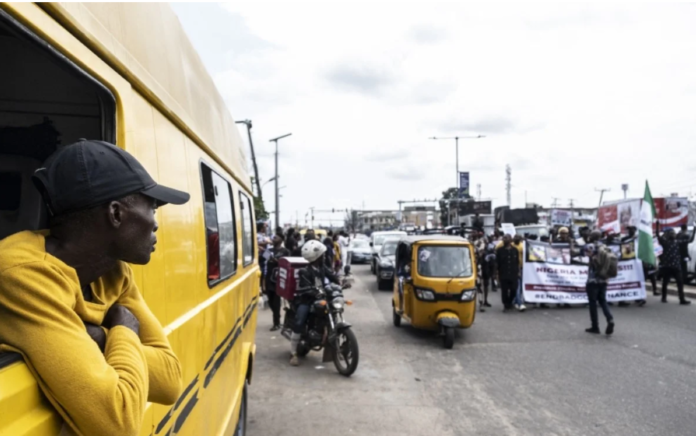By Joke Kujenya
ECONOMIC HARDSHIP continues to deepen in Nigeria, as citizens grapple with the ripple effects of fuel subsidy removal, a depreciated naira, and soaring inflation.
Petrol prices surged by nearly 500% within a year of the subsidy removal, leaving many households struggling to meet daily expenses.
Meanwhile, the liberalisation of the foreign exchange market resulted in a dramatic over 100% depreciation of the naira between October 2023 and October 2024.
Efforts by the Central Bank of Nigeria (CBN) to rein in inflation through contractionary monetary policies have led to record-high interest rates, climbing from 15.5% in late 2023 to 27.25% by September 2024.
Despite these measures, inflation remains rampant, reaching 34.6% in November 2024, with food inflation nearing 40%.
Nigerians are now paying significantly higher prices for food, transportation, energy, healthcare, and education.
Tax reforms and a newly implemented student loan scheme have offered little relief, while promises of improved living standards through economic reforms remain unfulfilled.
Public dissatisfaction is growing, as seen in widespread protests in August and October 2024 under the banner #EndBadGovernance.
The administration’s policies have received commendation from the World Bank, which praised efforts to address entrenched economic challenges.
However, for ordinary Nigerians, the benefits remain intangible.
Analysts predict that positive impacts from these policies may only manifest after several years, leaving 2025 poised to be another difficult year for many.
Economic growth, a crucial indicator of national progress, is expected to hover around 3% in 2025, below the 4% average projected for sub-Saharan Africa.
Factors like insecurity, foreign exchange shortages, and low oil production have constrained Nigeria’s potential for robust growth.
Although the services sector—spanning finance, construction, and entertainment—has been the primary driver of growth, its urban concentration means rural areas, where most Nigerians live, see little benefit.
The manufacturing sector, a key source of employment, is expected to perform poorly in 2025.
High inflation is likely to persist, particularly for food prices.
Insecurity, climate-related challenges, and poor farming conditions, coupled with an ageing farmer population, are set to exacerbate food supply constraints.
Additional inflationary pressure stems from businesses adjusting prices for goods and services to reflect 2024 production costs.
The naira’s value is expected to remain unstable despite the introduction of the Electronic Foreign Exchange Matching System (EFEMS).
Nigeria’s dependence on imports, combined with declining oil prices, will likely continue to weaken the currency.
The upcoming 2026 political primaries are anticipated to worsen the situation, as demand for foreign exchange rises among politicians preparing for elections.
The Nigerian National Petroleum Corporation’s recent sale of crude oil in naira to Dangote Refinery has introduced new dynamics to the forex market.
While this policy could reduce Nigeria’s dependence on imported fuel, its net effect on foreign exchange liquidity remains uncertain.
Living standards for Nigerians are unlikely to improve in 2025.
Rising multidimensional poverty—measured by income and access to essential services like health, education, and housing—will further erode the quality of life for millions.
Approximately 63% of Nigerians were categorised as multidimensionally poor in 2022, and this figure is projected to rise as inflation and unemployment deepen economic hardship.
Unless significant improvements in food security, job creation, and social investment occur, Nigerians will face another year of constrained purchasing power and deteriorating living conditions.





